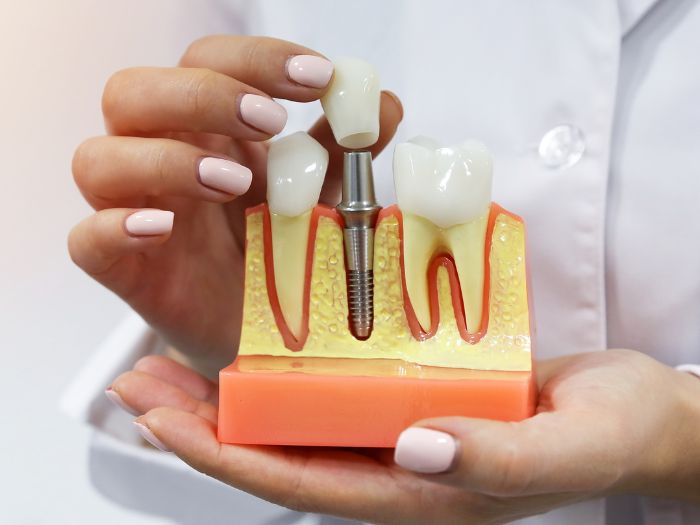
Things to Consider Before Taking Dental Implants Treatment in Sambalpur

Dental implants are a popular and effective solution for replacing missing teeth. They provide a natural look, restore function, and are a long-lasting option. However, several factors must be considered before proceeding with dental implants to ensure it is the right choice. This blog post will shed light on such factors before getting implants. So, let’s get started!
What are Dental Implants?
Dental implants involve surgically placing a titanium post into the jawbone, which replaces the root of a missing tooth. Over time, the implant fuses with the bone through osseointegration, creating a stable foundation for an artificial tooth or crown. This type of restoration mimics the appearance and function of natural teeth, offering a permanent solution for missing teeth.
Health and Dental Condition
The success of dental implants depends on your overall health and dental condition. Healthy gums and sufficient bone density are essential for proper integration. If you have gum disease or other health issues like diabetes or heart disease, discuss them with your dentist, as they may impact healing.
Additionally, smoking can stop recovery and increase the risk of failure, so it's essential to consider your lifestyle habits before undergoing the procedure.
Jawbone Density
One key factor in determining eligibility for dental implants is the density of the jawbone. When teeth are missing for an extended period, the bone in that area can deteriorate, making it difficult to support an implant. A bone graft may be needed to build the jawbone before the implant.
This additional step ensures the implant has a solid foundation, but it also adds to the time and cost of the treatment. Understanding this possibility beforehand is essential for proper planning.
Time Commitment
The dental implant process is not a one-day procedure. It typically requires multiple stages and can take several months from start to finish. After the implant is placed, there is a healing period where the bone needs to fuse with the implant, which can take three to six months.
A temporary crown or bridge may be provided, but the final restoration will be placed once the healing is complete. This extended timeline is important, especially if you're looking for a long-lasting solution for missing teeth.
Maintenance and Care
Once the dental implant is in place, it requires regular maintenance, just like natural teeth. Proper oral hygiene is essential to ensure the longevity of the implant. Brushing twice daily, flossing, and using an antibacterial mouthwash will help prevent gum disease, which could affect the implant.
Regular dental check-ups are also important to monitor the health of the implant and surrounding tissues. Dental implants don’t decay like natural teeth, but the gums around them need to be kept healthy to avoid complications.
Long-Term Benefits
Despite the time and financial investment, dental implants offer numerous long-term benefits. They restore the function of missing teeth and prevent further dental issues, such as bone loss and tooth shifting. The implants blend seamlessly with natural teeth, improving both aesthetics and functionality.
Moreover, implants provide stability and comfort that other tooth replacement options, like dentures, may not offer. They allow for easier eating, speaking, and smiling without worrying about slippage or discomfort.
Before opting for dental implants, it is essential to compare all these factors. Consulting with a dentist will help clarify the process, address specific concerns, and determine if implants are the right solution for your dental needs. With proper planning and care, dental implants can be a reliable, long-lasting option for restoring your smile and oral health.
If you are looking for high-quality dental implants in Sambalpur, visit our trusted Oro Dental Clinic for expert care and personalized treatment.
